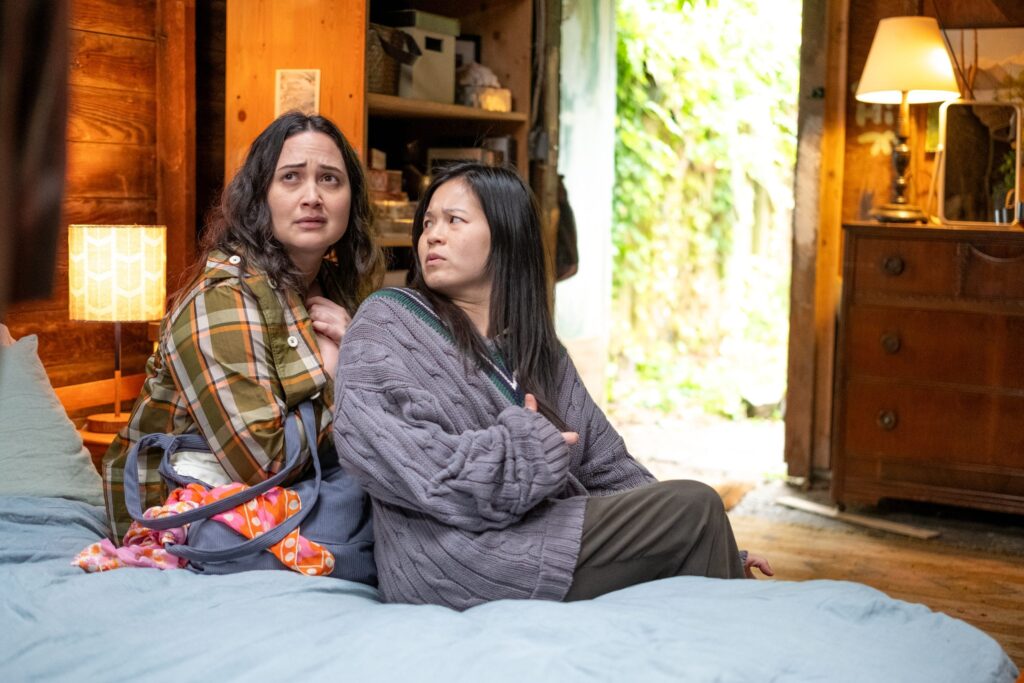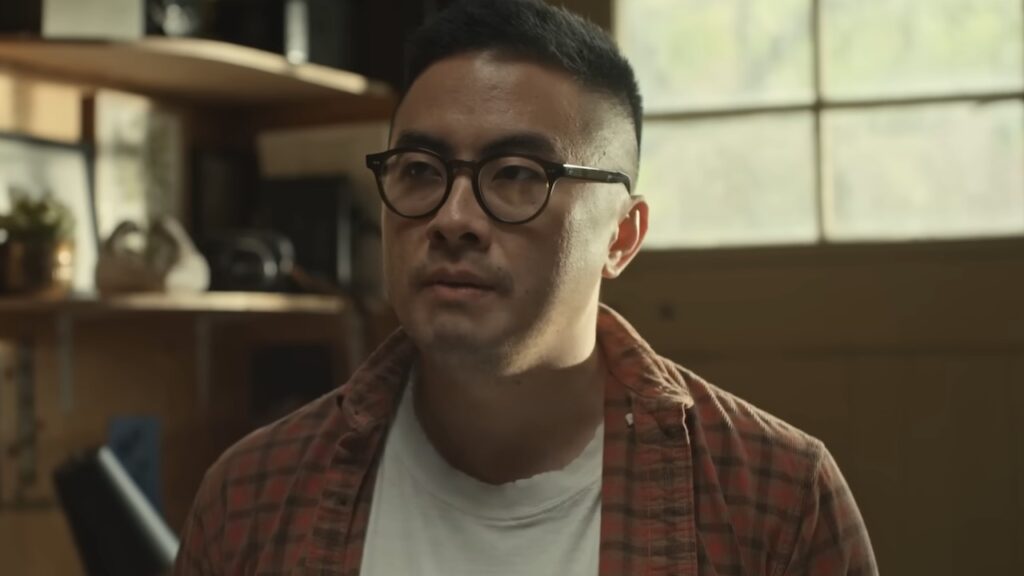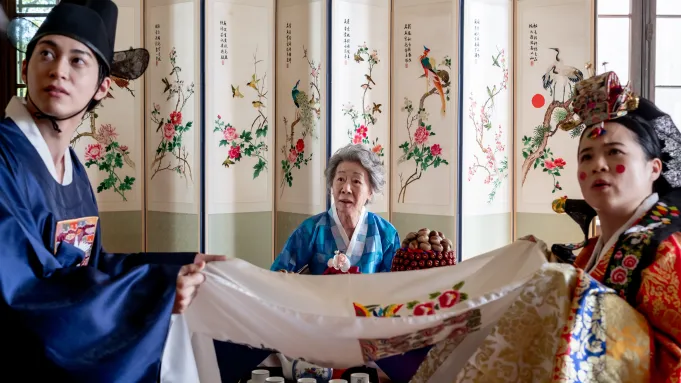“The Thursday Murder Club” Provides a Cozy Mystery
As a frequent “the book was better” extoller, this movie was well worth the watch.


In this remake of the 1993 film of the same name, The Wedding Banquet follows the life of two queer couples as they struggle with life-changing decisions. Although the central plot of the film remains the same, the 2025 version gives us a modern example of romantic love, friendship, family, and the decisions we need to make to find happiness.
In the movie, a Korean man, Min (Han Gi-chan), realizes that his Visa is expiring and he is expected to return to Korea to work at his wealthy family’s company. To avoid this fate, Min proposes to his long-term boyfriend, Chris (Bowen Yang), who is too scared of commitment to accept the proposal. Rather than leave his boyfriend and the life he created in Seattle, Min comes up with an idea. Their best friends are a lesbian couple unable to afford another round of IVF. Min offers to pay for the fertility treatment in exchange for a marriage. The planned green-card wedding goes awry when Min’s grandmother shows up and announces that there will have to be a big wedding ceremony complete with photographers.

One of the more poignant parts of this film were the conversations between lesbian couple Lee (Lily Gladstone) and Angela (Kelly Marie Tran) around IVF and pregnancy. While Lee wants to be the one to get pregnant, she is also older and the implant failed to take twice before. She worries that it would make more sense for Angela to get pregnant. At the same time, Angela fears having a child at all.
Being in a same-sex relationship means that there’s no possibility of getting pregnant for free. It’s something that needs to be saved up for and planned meticulously. This is something the characters are all too aware of and I appreciate the fact that while IVF payments were a plot vessel to the arranged marriage, it is also something that was handled carefully. Both Tran and Gladstone beautifully convey the sadness, fear, and hopeful excitement that accompanies having to scrupulously plan a pregnancy.

While Lee and Angela’s relationship felt real—down to the Pageboy memoir on the coffee table and Lilith Fair poster in the bathroom—Min and Chris lacked any sexual chemistry. I actually found myself rooting for them to break up at times. Yang plays a disaffected playboy a little too well—what worked in director Andrew Ahn’s previous film Fire Island backfired in what was supposed to be the portrayal of a long term relationship. His character’s close friendship with Angela served as a touchstone for the dynamic between the four main characters, but otherwise Yang did not provide much to the emotional gravitas of the film.
Lest I seem too negative, Yang did have the comedic line delivery of the movie after someone accused his social anxiety of ruining the vibe: “Jokes on you, my anxiety is generalized”

Both Min and Angela have family dynamics that will be relatable for members of the queer community. Angela’s mom initially cut her off completely but has since become the most enthusiastic ally around. The movie opens with her winning a PFLAG award for her allyship. For those of us in the know, this award also serves on a meta level. Angela’s mother is played by the iconic Joan Chen, the mother in Alice Wu’s iconic 2004 lesbian film Saving Face.
While it’s a privilege to have a parent who accepts you fully, it can feel overwhelming at times. Angela feels like her mother makes everything about herself. She feels trapped! These emotions are mirrored in her romantic relationship with Lee. While her girlfriend is not intentionally overbearing, Angela’s penchant for suppressing herself around a louder person causes conflict. It’s from this place of quiet fear that Angela wonders whether she’s even ready to have a child of her own, despite the time and money that has already been spent to achieve it.
For Min, he doesn’t feel comfortable coming out to his grandparents at all. He knows his grandfather is homophobic, and that doesn’t change over the course of the movie. His grandmother’s evolution, however, is beautiful to watch and feels rooted in both the character and the South Korean culture she comes from. She wants what is best for Min and believes that the “best” thing is what she grew up to want.
It’s difficult to break down the generational traumas that come with wanting to make your family proud, but The Wedding Banquet gives us two distinct examples of East Asian queer people trying to do just that.
It’s notable that this film features so many non-white people in queer relationships. There are still not enough queer movies, and the ones that do exist tend to mostly feature white people or one person of color dating a white person. There is a sense of community and understanding in this film. Nobody has to sit down and explain their parent’s belief system. Nobody is confused about how lesbians get pregnant.
It’s obvious how many queer people—and queer people who share the identities of the actors—were involved here. The Wedding Banquet embraces a sense of shared community and love that made me feel warm even during the scenes where I was crying.
Related lists created by the same author
As a frequent “the book was better” extoller, this movie was well worth the watch.
Related diversity category
"Peter Pan & Wendy" is a diverse fantasy brought to life and an adventure for all ages.
Related Movie / TV / List / Topic
The film is a documentary focusing on heavy metal in the late 80s and tackles topics like drug addiction, alcoholism, sex, masculinity, and of course, rock and roll. However, this didn’t feel like any documentary I’ve ever seen before.